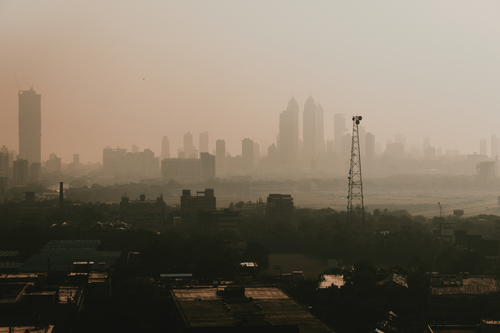ÐÎÑÑÈÉÑÊÈÉ ÏÐÎÔÅÑÑÈÎÍÀËÜÍÛÉ ÑÎÞÇ ÌÎÐßÊÎÂ
SEAFARERS' UNION OF RUSSIA
A NON-UNIONIZED SEAFARER
IS AN UNPROTECTED SEAFARER
Back
ITF hails new international human right to a clean, healthy and sustainable environment

In a landmark vote, the United Nations General Assembly has recognised a new human right to a clean, healthy and sustainable environment. This decision, taken at an especially bleak moment in history, is a ray of sunlight for workers everywhere.
The resolution – backed overwhelmingly by 161 countries, with no votes against and only eight abstentions – is not generally binding on member States. However, it further deepens the global consensus on the co-dependence of human rights and environmental protection, including climate action.
“This is a huge moment for workers, and perhaps especially for transport workers,” said Ruwan Subasinghe, ITF Legal Director. “Transport workers are on the front line of climate change and other environmental hazards, as they try to keep the world moving through worsening conditions on land, at sea and in the air. This new human right is a vital complement to the existing labour rights recognised in national and international law. Indeed, today’s vote adds impetus to an eventual recognition of a standalone human right to a just transition.”
For transport workers, the state of the natural environment is inseparable from issues of occupational safety and health. From rising temperatures and toxic air pollution to more frequent storms and flooding, environmental challenges are everyday work challenges for workers.
The new resolution also notes the particular vulnerability of women and young people to environmental damage, as well as their vital leadership role in achieving sustainable development.
The human right to a clean, healthy and sustainable environment has applications for workers across the different transport sectors:
Public transport and rail are integral to tackling both climate change and air pollution, and the joint ITF-C40 Future is Public Transport campaign aims to achieve significant modal shift away from private vehicles. Such an expansion must focus on a just transition for public transport workers, including worker-led formalisation where services and jobs are currently informal. The ITF’s Safe and Sustainable Rail campaign sets out a vision for the sector’s leading contribution to a low-carbon future.
The humanitarian role required by the world’s seafarers is increasing with the rate of wildfire evacuations and greater flows of climate refugees. The sector needs stronger safety standards to ensure resilience to climate change, while any shift to decarbonise must be negotiated with unions – especially as new technologies like ammonia, hydrogen and methanol fuels pose their own safety risks.
In aviation, significant public investment is needed in technologies to help the sector decarbonise. Unions must be represented at every stage of the process and new technologies must undergo rigorous safety assessments involving the workers who will be operating and exposed to them.
“This week’s General Assembly vote is just the start,” said Subasinghe. “With the G20 summit and COP27 on the horizon, governments have imminent opportunities to make this human right a lived reality. In particular, transport workers should be explicitly recognised within states’ nationally determined contributions under the Paris Agreement, as part of systematic plans to limit global warming in a socially just way.”
Photo credit- Vishal Davde
Up
